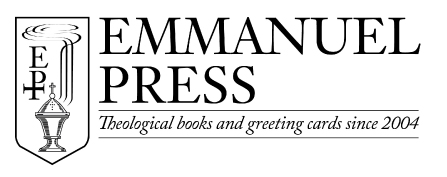Our Christmas in July sale is BETTER than our bulk discount
During our annual Christmas in July sale, buy more – save more on all books and Christmas cards.
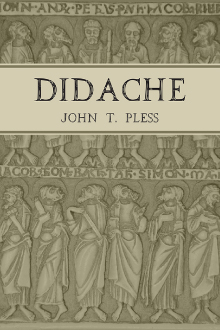 If you’ve considered buying any of our books in bulk…
If you’ve considered buying any of our books in bulk…
Didache
Ceremony and Celebration
Liber Hymnorum
He Restores My Soul
O Perfect Life of Love
What an Altar Guild Should Know
…you will save more NOW rather than getting the bulk discount later.
Didache uses the Bible, Luther’s Small Catechism, and the hymnal to instruct in a basic pattern of catechesis which expounds upon doctrine, liturgy, and vocation. Many pastors find it to be a helpful guide for Bible Class, while other customers use it for individual or group study.
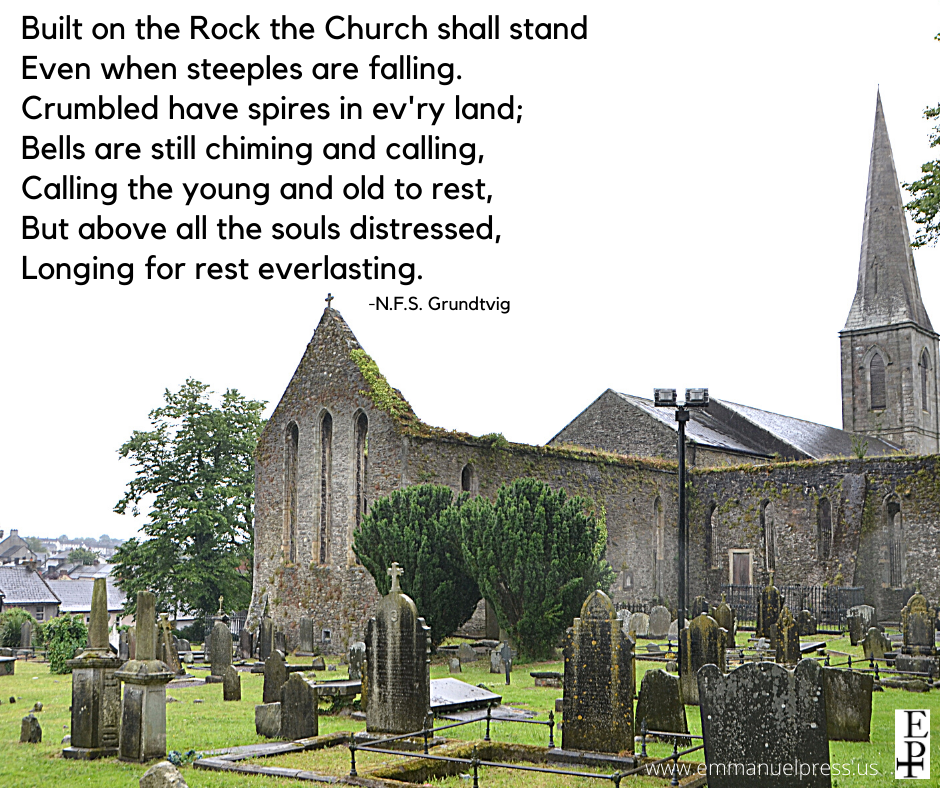
A Prayer for Blessing and Prosperity in One’s Calling
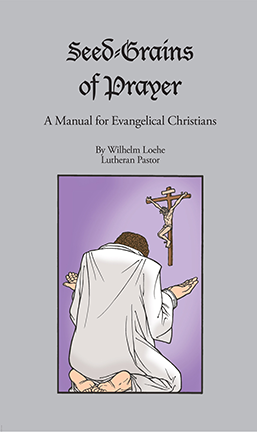 “My Lord, and my God, I realize that man’s work does not depend upon his own powers nor is it in any man’s province to ordain his walks and ways. So rule and govern me at all times, by Thy Holy Spirit, that I may keep mine eyes straight before me in my calling, and faithfully perform my duty. Guide me evermore in the right paths, that I turn neither to the right nor to the left there-from.
“My Lord, and my God, I realize that man’s work does not depend upon his own powers nor is it in any man’s province to ordain his walks and ways. So rule and govern me at all times, by Thy Holy Spirit, that I may keep mine eyes straight before me in my calling, and faithfully perform my duty. Guide me evermore in the right paths, that I turn neither to the right nor to the left there-from.
“Direct me always by Thy good pleasure, and let Thy Spirit lead me in the true paths, for Thou art my God. I realize also that Thou hast called me to labor in Thy vineyard, and how, even in my Baptism, I promised Thee that I would labor. To this end, I beseech Thee, grant me a healthy body, and strengthen me, O Lord, cheerfully to bear the heat and labor of my calling, always ready and faithful unto Thee. And since I know not the hour when my labors shall cease, teach me to be ready at all times unto a blessed departure, willingly to leave this world, and to fall asleep in peace and joy; that I may celebrate the eternal day of rest with Thee and all Thine elect. Amen.”
Wilhelm Loehe, Seed-Grains of Prayer, p. 67
Recommended: The Lutheran Kantor Project on YouTube
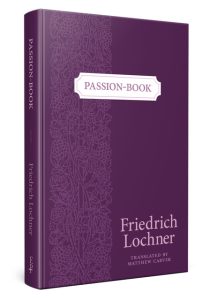 In Passion-Book, Friedrich Lochner includes a few hymn stanzas at the beginning and ending of each of sixty-six devotions on the different stages of the Passion History. Musical settings appended by Lochner for less common tunes (in his context) are also included in the book, engraved by Lutheran musician David Schotte.
In Passion-Book, Friedrich Lochner includes a few hymn stanzas at the beginning and ending of each of sixty-six devotions on the different stages of the Passion History. Musical settings appended by Lochner for less common tunes (in his context) are also included in the book, engraved by Lutheran musician David Schotte.
We have recently been made aware of Schotte’s YouTube channel, The Lutheran Kantor Project, which “aims to provide recordings of the great Lutheran chorales which are lesser known among English-speaking Lutherans. These recordings are designed to increase familiarity with tune and text.”
You can listen to David Schotte play the setting on organ and then sing acapella one of the hymns found in Passion-Book: “Christus, der us selig macht,” or “Christ, Who Saves Us by His Cross.” In the book, the melody and Stanza 8 of the hymn are included in Devotions 5 and 59 while the melody is suggested for the hymn stanza in Devotion 13.
Here is a PDF of the hymn with additional information below from The Lutheran Kantor Project:
Text: Michael Weiße, 1531; tr. composite, sts. 1–7, alt.; st. 8 Moravian Hymn-Book, 1819, st. 8, alt.
Tune: Michael Weiße, 1531.
Based on Patris sapientia, an ancient Latin office hymn traditionally sung on Good Friday, this hymn, originating in Weiße’s Bohemia, became popular in Lutheran Germany. It is most famous for its use by Bach in the St. John Passion, though Bach was only following the lead of Heinrich Schütz in his own Johannespassion from the century before.
This hymn is also notable for its references to the events of Christ’s passion at specific hours of the day, following Scripture’s own record of them. Here, they are translated as the names of the canonical prayer offices, as shown below:
Terce = third hour = 9:00 a.m.
Sext = sixth hour = 12:00 p.m.
Nones = ninth hour = 3:00 p.m.
Vespers = evening = 6:00 p.m.
Compline = bedtime = 9:00 p.m.
A helpful video series with commentary on the Divine Service
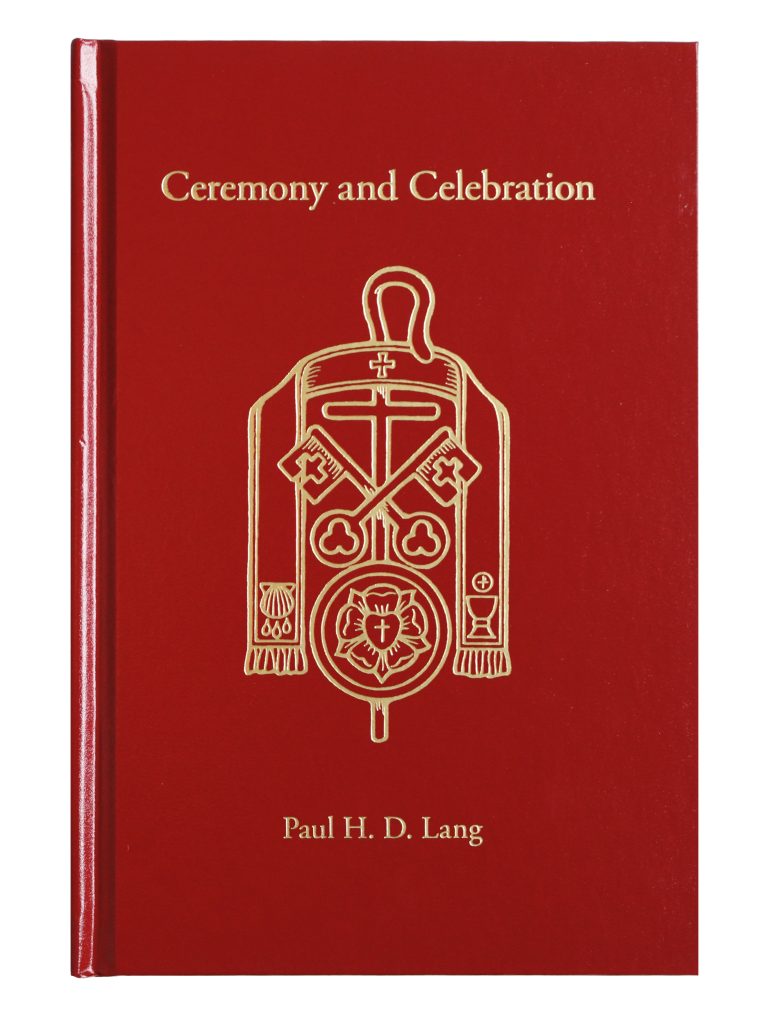 For those who want to learn more about why we do what we do in the Divine Service, we always recommend Ceremony and Celebration and The Conduct of the Service. Additionally, we want to call your attention to resources found on the YouTube channel of Redeemer Lutheran Church in Fort Wayne, Indiana.
For those who want to learn more about why we do what we do in the Divine Service, we always recommend Ceremony and Celebration and The Conduct of the Service. Additionally, we want to call your attention to resources found on the YouTube channel of Redeemer Lutheran Church in Fort Wayne, Indiana.
Along with recorded services and Bible classes, there is a series of videos from 2018 in which Pr. David Petersen describes historic practices and ceremony within the context of Divine Service 3. The videos combine parts of a recorded service with his commentary. As Pr. Petersen states, “All Lutheran rubrics, in a sense, are ‘may’ rubrics. That is to say, everything in this is adiaphora.” His helpful explanation of these “ceremonies, particularly how they’ve been modified and in practice at Redeemer,” will be of interest both to pastors, who are the primary audience, and also to parishioners, who will benefit from deeper knowledge of the reverence and history of ceremony in the Divine Service.
*Watch the series on YouTube: Parts One, Two, Three, Four, Five, Six.

Let’s stay in touch! To receive the most current information on our products and new releases, join our email list today!
